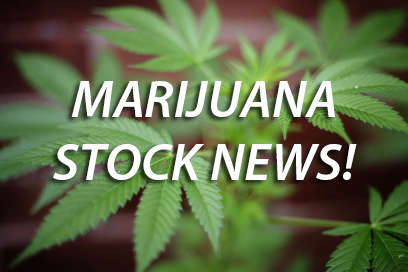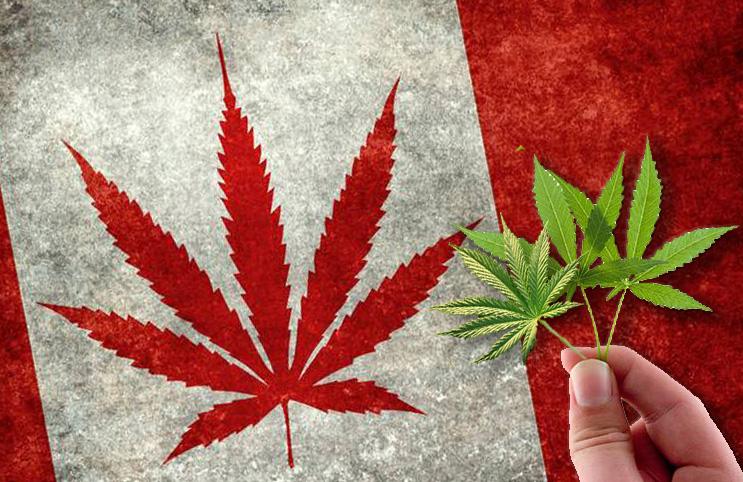US Cannabis Prepared For End Of Prohibition
The last few months in the marijuana stock market, albeit volatile, have allowed for the maturity of the cannabis industry and its related companies. The cannabis market has witnessed tremendous growth in public acceptance as well as an insurmountable level of drive from companies to innovate and release high-quality products resulting in the shared excitement of consumers and investors alike. As the marijuana industry grows to become one of the largest sectors of the industry, market growth will be limited until the legalization of cannabis comes to pass in more US states.
As we reach the midpoint for President Trump’s first term in office, voters across the country will travel to their various polling locations to voice their opinions on the last two years of the Trump administration. While this is incredibly important, US midterm elections have much more at stake than a performance review for Trump. According to a recent Ballotpedia tally, over 150 ballot measures will be decided on Tuesday, including 63 measures that could create new legislation or rid states of older laws.
One of the many hard-hitting issues we, as Americans, will be voting on this year is marijuana legislation, with voters in 16 states determining the fate of the substance, according to CNBC. After the Prohibition era ended in the U.S. in the early 1930s, the economy flourished with opportunities created from the sale and distribution of alcoholic beverages. The Federal government recognized that, with proper regulation, alcohol was more profitable than it was harmful to the American public. With several states voting on cannabis-related legislation, perhaps the end of marijuana prohibition is on the horizon.
Michi-ganja
According to a recent Detroit Free Press poll, Michigan’s cannabis measure, Proposal 1, is supported by as much as 57% of voters headed to the polls on Tuesday. Josh Hovey, a spokesman for the Coalition to Regulate Marijuana Like Alcohol, yet another ingenious organizational name, said: “the public recognizes that prohibition causes more harm than the product itself and that regulation and taxation is the way we need to go.”
Addressing Hovey’s point, consider, for sake of argument, that 52% of all drug arrests made in America in 2010 were for marijuana. An ACLU analysis of drug-related arrests showed that of the “8.2 million marijuana arrests between 2001 and 2019, 88% were simply for having marijuana.” We, as taxpayers, spend our hard-earned money on the maintenance and operation of state/federal detention centers, and if states like Michigan legalize cannabis, we will see a decline in incarceration rates.
Opponents to Michigan’s Proposal 1 say voters need to fully recognize the gravity of the situation. These individuals believe that revenue gained from taxes collected through cannabis distribution and sales will be lost to an increase in funding for state “drug treatment and campaigns to keep kids from using cannabis.”
North Dank-ota
Travel two states over from Michigan and you’ll find yourself in the “Roughrider State” more commonly known as North Dakota. Dakotan (Dakotians? Daquotients?) voters are considering a number of measures for the upcoming midterm election, most notably Measure 3 which in addition to fully legalizing recreational marijuana, will also forgive felons convicted of marijuana-related crimes. Defense attorneys across North Dakota are asking judges to postpone sentencing in marijuana-related cases in hopes that the measure will pass, according to USA Today.
Unlike other states who’ve passed cannabis legislation including systems to tax and regulate cannabis sales, North Dakota’s Measure 3 does not include any provision related to these stipulations. Under Measure 3, residents of the state are legally entitled to grow as much marijuana as they please and then sell it without paying any tax to the state. Those hoping the bill doesn’t pass believe Measure 3’s repealing of state marijuana regulation will result in stoned vehicle operators and an increase in public consumption and “intoxication.”
“It’s a wide-open, no-holds-barred, no-limits-on anything, no-oversight, poorly written measure.”
–Norm Robinson, Campaign Manager, North Dakotans Against the Legalization of Recreational Marijuana
Closing Thoughts
No one wants to suffer from “FOMO” (fear of missing out) because they didn’t recognize the potential opportunity marijuana legislation presents for the cannabis market in the US. Imagine if you purchased Apple (AAPL) at its IPO price of $22 per share back in 1980. This article would be ready to you by your personal news butler in your mansion somewhere in the French Alps.
It’s impossible to tell the future, and even more so know the fate of a volatile market like the cannabis sector, but the events of the US midterm elections may indicate a potential major opportunity.
MAPH Enterprises, LLC | (305) 414-0128 | 1501 Venera Ave, Coral Gables, FL 33146 | new@marijuanastocks.com










